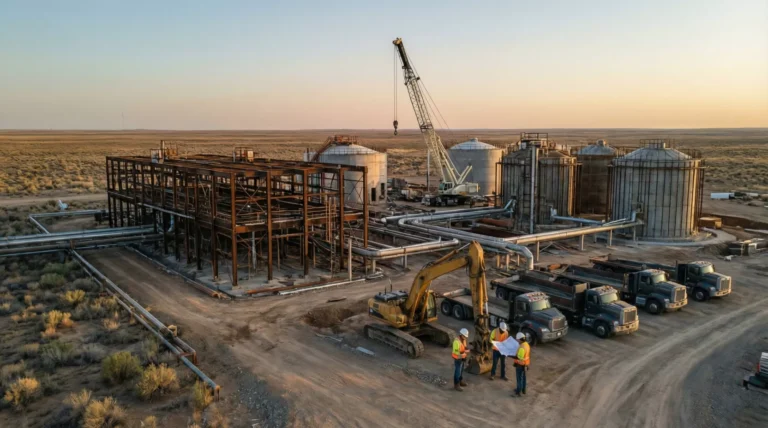
ExxonMobil (NYSE: XOM) has unveiled plans to invest over $200 million in the expansion of its advanced recycling facilities in Baytown and Beaumont, Texas. This initiative underscores the company’s commitment to addressing global plastic waste challenges and advancing circular economy goals. The expanded operations, slated to commence in 2026, aim to significantly increase recycling rates and reduce the amount of plastic waste sent to landfills. By 2027, ExxonMobil targets a global advanced recycling capacity of 1 billion pounds per year.
Advancing Plastic Circularity
Karen McKee, president of ExxonMobil Product Solutions, emphasized the transformative potential of this investment. “We are solutions providers, and this multi-million-dollar investment will enhance our ability to convert hard-to-recycle plastics into raw materials that produce valuable new products,” McKee stated. Highlighting the success of the Baytown facility, she added, “We’ve proven advanced recycling works at scale, which gives us confidence in our ambition to provide the capacity to process more than 1 billion pounds of plastic per year around the world. We’re proud of this proprietary technology and the role it can play in helping establish a circular economy for plastics and reducing plastic waste.”
The expansion will add 350 million pounds per year of advanced recycling capacity to the Baytown and Beaumont sites, increasing ExxonMobil’s total annual capacity to 500 million pounds. This forms a critical step toward the company’s global goal of achieving 1 billion pounds of advanced recycling capacity by 2027.
Global Reach and Growing Demand
ExxonMobil’s advanced recycling operations cater to customers across more than 15 countries and serve diverse industries, including food-safe packaging and pet products. The demand for recycled materials continues to rise as companies increasingly prioritize sustainable solutions.
Advanced recycling offers a distinct advantage over traditional mechanical recycling by converting plastic waste into raw materials that can be used in a wide array of products, such as fuels, lubricants, and high-performance chemicals. Importantly, advanced recycling can process a broader range of plastic waste types, many of which are unsuitable for mechanical recycling and would otherwise end up incinerated or in landfills.
Toward a Circular Economy
ExxonMobil’s efforts align with the broader goal of establishing a circular economy for plastics. Circularity involves designing products for easier recyclability, enhancing waste management systems, and recovering resources from used materials. Advanced recycling is a pivotal component of this framework, enabling plastics to be repurposed repeatedly without degrading in quality.
“The world’s plastic waste challenge will be solved with innovation, collaboration, and supportive government policy to improve waste management and circularity,” McKee said. She noted that ExxonMobil is actively contributing to these solutions by developing scalable technologies, investing in recycling infrastructure, and supporting customers in meeting their sustainability objectives.
Proven Success in Advanced Recycling
ExxonMobil’s advanced recycling journey began with its Baytown facility, which launched operations in 2022. As of October 2024, the facility has processed over 70 million pounds of plastic waste, making it one of North America’s largest advanced recycling plants. The success of this facility serves as a blueprint for scaling up similar projects globally.
Additionally, ExxonMobil co-founded Cyclyx, a joint venture launched in 2021 to improve the collection and sorting of plastic waste. This collaboration aims to address key challenges in the recycling ecosystem, ensuring a steady supply of high-quality feedstock for advanced recycling facilities.
Meeting the Challenges of Plastic Waste
ExxonMobil’s investment in advanced recycling represents a significant step toward tackling the growing issue of plastic waste. With governments, industries, and consumers increasingly focused on sustainability, the company’s efforts are poised to make a substantial impact. The planned expansion will not only divert more plastic waste from landfills but also help produce valuable raw materials for diverse applications, supporting a sustainable and circular approach to plastics management.
Through continuous innovation and investment, ExxonMobil is setting a precedent for the future of plastic recycling. By integrating advanced recycling technologies with global infrastructure, the company is driving meaningful progress toward a more sustainable and circular economy for plastics.










